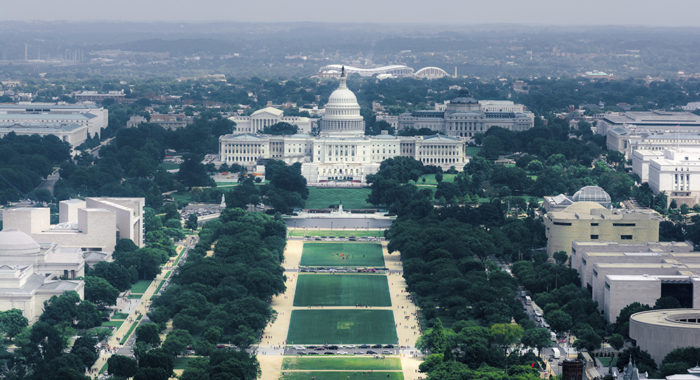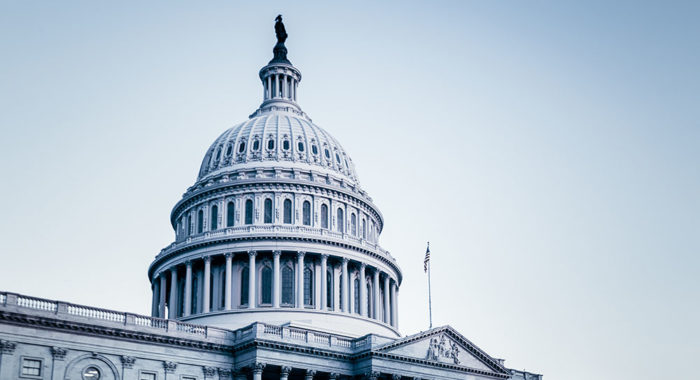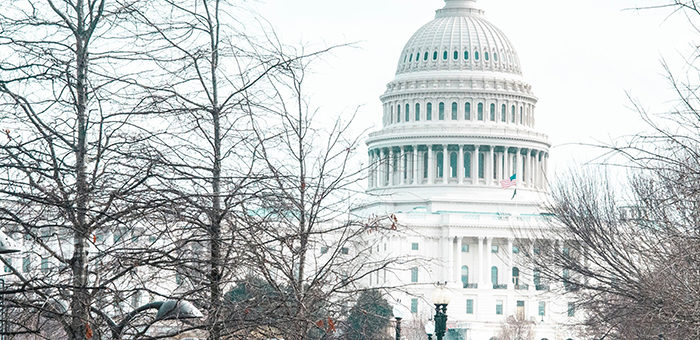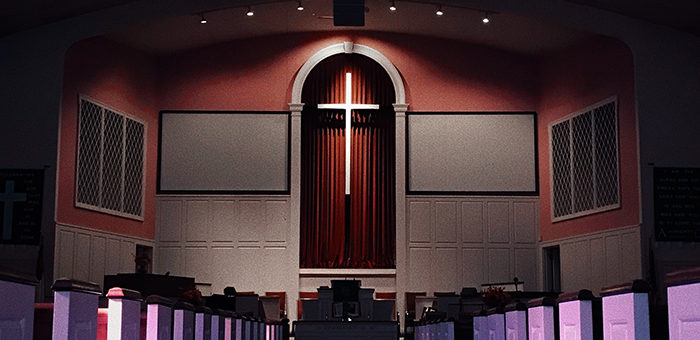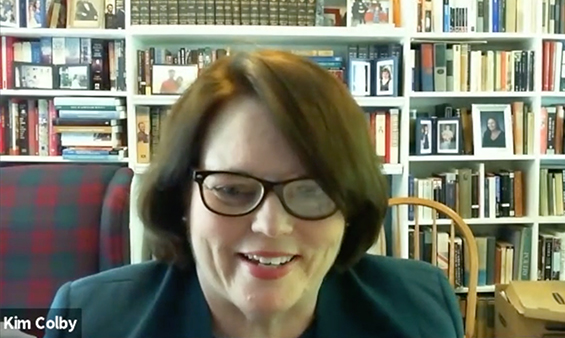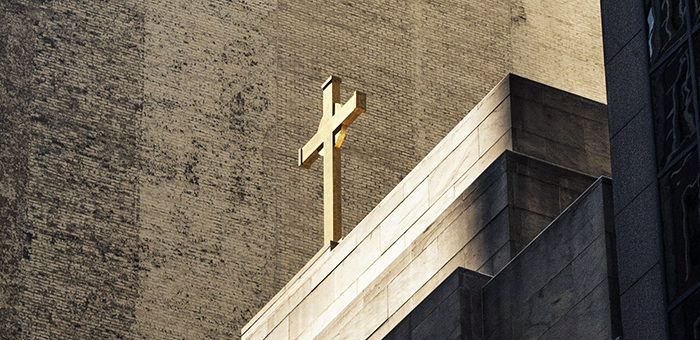The young pastor very quietly, yet very determinedly, spoke, “I will go to jail rather than testify about what he said to me as a pastor.” And with that my heart sank, because I knew that there was a real chance that this pastor would spend time in jail rather than divulge what another man, who was charged with a terrible crime, told him as a pastor.
The state prosecutors had already threatened the pastor with jail if he refused to testify about his conversation with the accused. I had done enough research on the clergy-penitent privilege to know that many states, including the state in which the pastor lived, recognized only a very narrow privilege for a clergy member not to testify about what an accused said in confidence. I was not at all certain that this state’s courts would rule in favor of the pastor’s right to remain silent.
Nonetheless, my boss nodded to the pastor’s lawyer, “We’ll write an amicus brief in support of your client’s right under the clergy-penitent privilege in hopes of persuading the court that he should not be jailed.”
We (Christian Legal Society) wrote a good brief. But much more importantly, 10 other religious organizations, including the National Association of Evangelicals, the state Catholic Conference, The Church of Jesus Christ of Latter-day Saints, and the American Jewish Congress, joined the brief. The number of religious organizations, and the fact that they represented a diversity of faiths, almost certainly helped persuade the state court that it was dealing with a significant case in which the outcome would affect far more than a solitary pastor.
Thanks in part to this amicus brief, the court ruled in favor of the pastor. It was just one example of how amicus briefs often have a real impact on the outcome of a case.
What is an Amicus Brief?
“Amicus” is Latin for friend, and often “amicus briefs” are called “friend-of-the-court briefs.” They are briefs that are not the parties’ main briefs, but instead are auxiliary briefs written by lawyers for organizations or individuals who are interested in the outcome of a case but who are not directly involved in the underlying case.
Amicus briefs are written to bring to the court’s attention how its decision may affect individuals or institutions other than the parties. Because amicus briefs are supplementary briefs, they are able to focus on a specific issue that the parties can only address in a cursory fashion in the main briefs. Amicus briefs can also add factual context to the parties’ arguments that help the court consider the impact of its decision.
Defending Religious Freedom
Amicus briefs are an important tool in the defense of religious freedom, because they allow religious organizations to contribute their unique voice to the court’s consideration of arguments for protecting religious freedom in a particular context. A recent example of this is the amicus brief filed by CLS and NAE in the ministerial housing allowance case.
The Freedom From Religion Foundation filed a lawsuit against the Internal Revenue Service challenging the housing allowance for ministers in the tax code. A Chicago congregation entered the case on the side of the government to ensure religious freedom arguments were properly presented to the court.
For many clergy, the housing allowance is a significant component of their compensation. The amicus brief joined by CLS, NAE, Evangelical Council for Financial Accountability, and other groups provided the court with well-researched estimates as to what the loss of the housing allowance would mean for the average minister, and how much the average congregation would need to increase pay in order to compensate its minister(s) for the lost compensation if the court ruled that the housing allowance was unconstitutional. Essentially, the CLS/NAE amicus brief helped the court understand what was at stake in its ruling for the thousands of congregations that were not actually parties to the case.
On appeal, the court of appeals ruled that the housing allowance was constitutional. In a footnote, it particularly noted information provided in the CLS/NAE amicus brief, which had been prepared by Professor Thomas Berg and his students in the Religious Liberty Appellate Clinic at the University of St. Thomas School of Law (Minneapolis). The court’s decision saved congregations of all faiths nationwide hundreds of millions of dollars a year.
From Animal Sacrifice to Baking Cakes
It is important for religious organizations to defend others’ religious freedom, even when their religious beliefs are repugnant to them. For example, in 1993, the U.S. Supreme Court heard a case in which a Florida city had passed a series of laws to target the animal sacrifices that a Santeria congregation performed in their rituals that were an admixture of Catholicism and voodoo.
The Supreme Court correctly ruled that the city had violated the congregation’s free exercise of religion by effectively outlawing its animal sacrifices while allowing animal killings for non-religious reasons to continue. CLS had filed an amicus brief, joined by NAE, in support of the free exercise rights of this small, unpopular group. Some CLS members were unhappy about a brief in support of a group whose practices were contrary to Christianity.
But 25 years later, that 1993 decision became crucial precedent for the Supreme Court’s ruling in favor of Jack Phillips, the Christian baker who had been punished by the Colorado Civil Rights Commission for refusing to bake a cake for a same-sex wedding.
CLS, NAE and several other religious groups filed an amicus brief in support of Jack Phillips’ free exercise of religion. The brief explained that the Colorado Commission had violated Jack Phillips’ free exercise of religion when it punished him for refusing to make a cake based on his religious objections, but decided not to punish three other bakers who had refused to make cakes based on their nonreligious objections. The court adopted the reasoning urged by the CLS/NAE amicus brief, ruling that the Colorado Commission’s inconsistent treatment of Jack Phillips was sufficiently analogous to the Florida city’s inconsistent treatment of the Santeria adherents and that Jack Phillips’ free exercise of religion had been violated.
By helping judges understand the real-world consequences of their decisions for congregations and pastors, the CLS/NAE amicus briefs have advanced religious freedom significantly in scores of cases over the past four decades. The need for thoughtful, knowledgeable voices to speak in defense of religious freedom will only increase in the coming decade.
This article originally appeared in Evangelicals magazine.
Kim Colby has worked for Christian Legal Society’s Center for Law and Religious Freedom since graduating from Harvard Law School in 1981. She has represented religious groups in several appellate cases, including two cases heard by the U.S. Supreme Court. She has prepared several CLS publications addressing issues about religious expression in public schools, including released time programs, implementation of the Equal Access Act, and teachers’ religious expression. In addition to her law degree, Colby holds a bachelor’s degree in American history from the University of Illinois.




 View All Articles
View All Articles 





